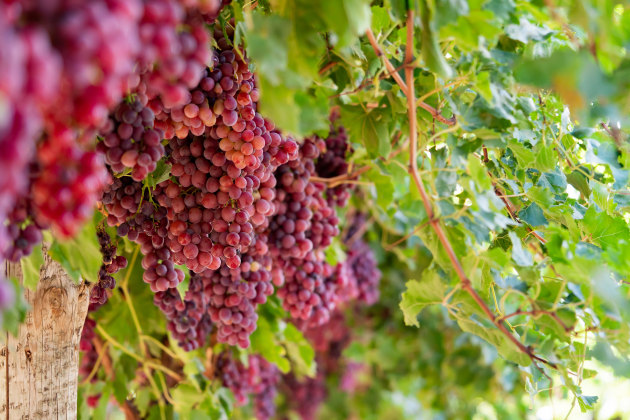Technology provider Result Group is playing a crucial role in a Victorian Government pilot trial boost Australian table grape traceability for lucrative high-value export markets.
The table grape trial is one part of the state government’s $8.4 million investment in supporting agricultural producers grow their export markets, build domestic capabilities, and manage supply chain risk.
Result is working with Australian Table Grape Association (ATGA), which has secured a major innovative project to strengthen table grape traceability for high-value export markets. ATGA and Agriculture Victoria will partner to lead the $650,000 project.
Australia’s table grapes are the nation’s largest fresh horticulture export, valued at $800 million with $623 million in export product. Of the country’s table grape exports, 90 per cent is generated by Victorian producers and exporters at a value of $562 million across 152,000 tonnes.
The pilot started in June and will run for the 2021/22 table grape harvest season with the goal to build, diversify and protect exports by developing producer-consumer traceability.
New traceability systems that will be implemented include labelling and integration with cool chain tracking in a bid to leverage the value of Australian export brands. These have previously been impeded by limited product and cool chain traceability as fruit enters export countries.
Result Group will apply unique serialised GS1 Digital Link-enabled QR code labels to export table grapes, allowing the automated collection of data from farm and supply chain. That can then be shared with consumers to authenticate the food’s precise origin and engage with the brand through an open platform smartphone scan.
Result Group general manager Michael Dossor said: “We are beyond excited and proud to be the traceability technology provider for the program.
“We have assembled the world’s best technology and, with local talent, adapted it to make it right for the Australian produce sector,” he said.
The Active Digital Identity embedded in the QR code labels ensures each one is unique and traceable. Labels will also carry critical international traceability data, based on GS1 current standards.
This will cover consumer pack units, cases and pallet codes, as well as time and temperature logging, which will be captured through the EVRYTHNG Product Cloud database.
ATGA CEO Jeff Scott said: “It is important that all growers embrace traceability of their product to ensure the link from the grower to the consumer gives confidence all the way through the supply chain of a high-quality product and food safety.”
Technology collaboration
According to Simon Jones, senior vice-president of EVRYTHNG, the most exciting thing we see with this program is how the whole industry can immediately benefit from it,” added.
“Working with Result Group, we have configured technology and software already proven worldwide, to meet the particular needs of the table grapes sector, so this is now plug and play for producers from here on,” added Jones.
GS1 Traceability standards will be incorporated into the pilot, enhancing the international compatibility of these supply chains for global exports. Specifically, GS1 Digital Link will be used as the basis of all supply chain and consumer interactions.
GS1 Australia chief customer officer Marcel Sieira said GS1 was pleased to support traceability projects through advice on GS1 standards and labelling options.
“GS1 standards enable organisations to identify, capture and share information smoothly, creating a common language that underpins systems and processes all over the world,” said Sieira.
The $8.4 million announcement by Victorian Minister for Agriculture Mary-Anne Thomas forms the first round of funding in the state government’s $15 million Food to Market program, a 10-year strategy to supporting industry to recover from COVID-19 impacts and deliver a “strong, innovative, and sustainable” Victorian agricultural sector.






